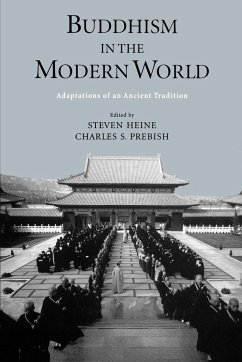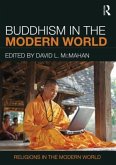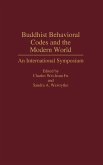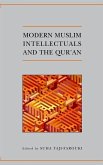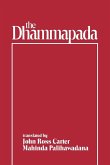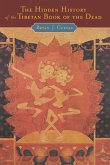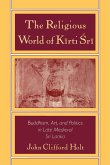The history of Buddhism has been characterized by an ongoing tension between attempts to preserve traditional ideals and modes of practice and the need to adapt to changing cultural conditions. Many developments in Buddhist history, such as the infusion of esoteric rituals, the rise of devotionalism and lay movements, and the assimilation of warrior practices, reflect the impact of widespread social changes on traditional religious structures. At the same time,
Buddhism has been able to maintain its doctrinal purity to a remarkable degree. This volume explores how the traditional Buddhist communities of Asia have responded to the challenges of modernity, such as science and technology, colonialism, and globalization. Editors Steven Heine and Charles S. Prebish
offer a pan-Asian approach, giving proportional treatment to the three regional legacies under which Buddhism is classified today: the traditions of East Asia (represented here by China, Taiwan, Japan, and Korea), India and Southeast Asia (Sri Lanka and Thailand), and the Himalayas (Tibet). Nine essays, all commissioned expressly for this volume, consider how the encounter with modernity has impacted the disciplinary, textual, ritual, devotional, practical, and socio-political traditions of
Buddhist thought throughout Asia. The result is the most comprehensive available overview of Asian Buddhism today.
Hinweis: Dieser Artikel kann nur an eine deutsche Lieferadresse ausgeliefert werden.
Buddhism has been able to maintain its doctrinal purity to a remarkable degree. This volume explores how the traditional Buddhist communities of Asia have responded to the challenges of modernity, such as science and technology, colonialism, and globalization. Editors Steven Heine and Charles S. Prebish
offer a pan-Asian approach, giving proportional treatment to the three regional legacies under which Buddhism is classified today: the traditions of East Asia (represented here by China, Taiwan, Japan, and Korea), India and Southeast Asia (Sri Lanka and Thailand), and the Himalayas (Tibet). Nine essays, all commissioned expressly for this volume, consider how the encounter with modernity has impacted the disciplinary, textual, ritual, devotional, practical, and socio-political traditions of
Buddhist thought throughout Asia. The result is the most comprehensive available overview of Asian Buddhism today.
Hinweis: Dieser Artikel kann nur an eine deutsche Lieferadresse ausgeliefert werden.

